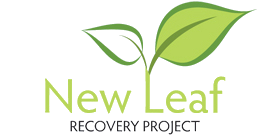Meditation and Mindfulness for Addiction Recovery: Emerging Trends

Recently, meditation and mindfulness have emerged as powerful tools for individuals looking to recover from drug or alcohol addiction. Meditation helps to promote ‘mindfulness’: a state of mind whereby an individual can escape from repetitive and negative thought-patterns associated with addiction. In doing so, one can achieve a sense of calm, laying the foundations for healthier, more positive thought-patterns that can help with longer-term recovery from addiction.
In this blog, we’ll explore how New Leaf Recovery is taking full advantage of this emerging trend with our bespoke meditation and mindfulness therapies. We’ll breakdown what meditative therapy is, how mindfulness in addiction recovery works, and the support we offer for addiction recovery here at New Leaf Recovery.
Call New Leaf Today
What is Meditative Therapy?
Meditative therapy is a mind-exercise that involves quieting the constant chatter of the mind. It’s estimated that the average person has around 60,000 thoughts a day – that’s a lot of time and energy spent stressing or worrying about current happenings, reflecting on past events, or having anxieties about the future.
Meditative therapy seeks to disrupt this constant state of mind-chatter. This allows an individual to achieve a state known as ‘mindfulness’. In this state of mind, all negative thought-patterns, anxieties and stresses are temporarily alleviated and silenced. This allows an individual to ‘get out of their own head’ so to speak, resulting in a feeling of peace and calm that can provide much needed clarity and respite from our busy and stressful day-to-day lives. If practiced regularly and effectively, this can lead an individual to being able to tap into this frame of mind more frequently. Over time, this can greatly improve one’s mental health, allowing an individual to gain greater control over their thoughts, feelings and emotions.
How Does Mindfulness in Addiction Recovery Work?
The constant state of mind-chatter we can find ourselves in – if combined with excessive alcohol or drug consumption – can lead to the development of negative and harmful thought-patterns surrounding substances. One might drink to escape from present-day stresses, forget about the past, or delay events to come. If taken further, drink or substances can then become habitual. Powerful cravings can emerge, and it can suddenly feel impossible to break out of these negative thought-cycles that repeatedly lead one down the path substance abuse. Rest assured, however, that recovery is always possible.
Recent studies have revealed that mindfulness in addiction recovery is a powerful tool when it comes to combating addictions. Mindfulness and meditation can enhance self-awareness and emotional regulation, helping individuals acknowledge and manage their triggers and cravings. These therapies foster a non-judgmental attitude, reducing the impact of stress and negative emotions that contribute to substance abuse.
Moreover, mindfulness can decrease behavioural and emotional tendencies associated with addiction by promoting cognitive control and neurocognitive capacities. This control strengthens the connectivity in the brain, particularly in areas responsible for reward processing and habit formation. Down the line, this helps with gaining a greater level of self-control over addictive behaviours.
Reach Out Today; Give Us a CallWhat Are the Benefits of Mindfulness for Addiction Recovery?
Mindfulness and meditative therapies have consequently become essential tools in addiction recovery, offering a range of benefits that support lasting change. These include, but are not limited to:
- Enhanced Emotional Regulation: Mindfulness helps individuals manage and process emotions more effectively, reducing impulsive reactions linked to addiction.
- Strengthened Resilience: Regular mindfulness practice builds resilience, enabling individuals to handle life’s challenges without reverting to substance use.
- Increased Neurocognitive Function: Mindfulness enhances brain functions related to decision-making, improving the ability to make healthier choices.
- Improved Focus and Concentration: Meditation enhances attention and concentration, helping individuals stay focused on recovery goals.
- Healthier Relationships: Mindfulness fosters better communication and empathy, improving relationships and providing social support essential for recovery.
- Reduction of Co-occurring Disorders: Mindfulness can alleviate symptoms of co-occurring mental health issues like depression and PTSD, which often accompany addiction.
Mindfulness for Addiction Recovery: What New Leaf Offers
Here at New Leaf Recovery, we offer a range of rehabilitative therapies and treatment options to help individuals recover from their addiction, including meditative therapy. Our bespoke mindfulness programmes are designed to empower individuals on their recovery journey by offering a deeper sense of self-awareness and present-moment focus.
Through guided meditation practices, we help individuals fine-tune their breathing and bodily sensations, allowing them to observe thoughts and emotions without judgment. These breathing techniques can provide a powerful sense of calm and allow you to tap into a state of mindfulness. This practice not only encourages a non-judgmental attitude but also helps individuals break free from their negative thought patterns, promoting a more positive and constructive outlook on life.
By cultivating this mindfulness, our clients can set realistic, achievable goals and effectively monitor their progress in recovery. Our approach nurtures a calmer, clearer mindset, enabling individuals to manage their thoughts, actions, and behaviours with greater control. Ultimately, this helps successfully support their recovery from addiction.
Contact New Leaf for Addiction Support Today
At New Leaf, we tailor our sessions to meet the unique needs of each client, ensuring they receive the personalised care they deserve for their long-term healing and well-being. If you or a loved one are struggling with addiction, New Leaf Recovery is here to help. Our personalised mindfulness and meditation therapies provide the support needed for lasting recovery. Don’t wait to get the support you need, contact us to take the first step towards a healthier, more fulfilling life, and turn over a new leaf with us today.
Seek Support with New Leaf TodayReceive a Free Call Back
"*" indicates required fields
Our Complete Recovery Journey - from your initial enquiry, all the way through treatment and beyond into ongoing support, New Leaf Recovery are there to guide and support you.
New Leaf offers a complete journey of treatment - from initial detoxification and rehabilitation to ongoing support, including aftercare, family support, and beyond into long-term recovery.
Getting the right accommodation enables us to provide the right backdrop for our recovery methods. Any form of rehabilitation needs to happen in a safe, comfortable, secure and friendly environment.
Receive a Free Call Back
"*" indicates required fields










